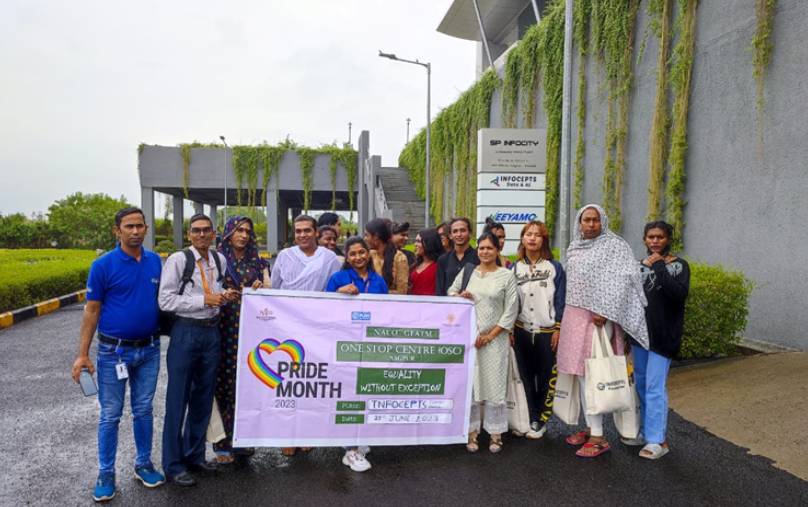Project Gfatm



The project seeks to work with the key PLHIV populations, who cannot access the traditional Target Intervention (TI) model. Given the COVID pandemic, mitigation effort and reverse migration, the project is critical in ensuring prevention of HIV/ STI among these risk groups. The activities under this grant will supplement the national programs efforts through an Integrated care approach, by networking and linkages with existing TIs and departments.
Communities Served





Goal
Having substantial experience with setting up and offering successful integrated care services across India, YRGCARE is working towards establishing strong interventions that reach key objectives with rigorous scientific processes and provide documented good practices for replication for other incarcerated settings as well, tweaking these approaches to suit the uniqueness of each targeted group setting.
Objectives
The programme seeks to achieve the following objectives by March 2024 -

Expand HIV and other critical health interventions for incarcerated populations in prisons & other closed settings in 5 East and 8 North East states of India

Develop integrated service delivery models through one-stop centres for clinical and behavioural aspects of HIV and social protection services among transgenders (TG), People who use/inject drugs (PWUD/ PWID) and Bridge population (BP) across India

Strengthen the capacities of the TG, PWUD/PWID communities, CBOs, networks and strengthening systems leading to increased community participation in the national response through systematic approach that supplements the ongoing TI programme across India.
Locations
- 1 Madhya Pradesh
- 2 Maharashtra
- 3 Gujarat
- 4 Rajasthan
- 5 Uttar Pradesh
- 1 Chandigarh
- 2 Haryana
- 3 Himachal Pradesh
- 4 Jammu & Kashmir
- 5 Ladakh
- 6 New Delhi
- 7 Punjab
- 8 Uttarakhand
- 1 Arunachal Pradesh
- 2 Assam
- 3 Manipur
- 4 Meghalaya
- 5 Mizoram
- 6 Nagaland
- 7 Sikkim
- 8 Tripura
- 1 Bihar
- 2 Chhattisgarh
- 3 Jharkhand
- 4 Odisha
- 5 West Bengal
- 1 Andhra Pradesh
- 2 Goa
- 3 Karnataka
- 4 Kerala
- 5 Pondicherry
- 6 Tamil Nadu
- 7 Telangana
Services
The HIV care cascade encompasses a complete range of services for HIV prevention and treatment, specifically for key and bridge populations within the programme. This sequence typically involves diagnosing HIV, ensuring the initial linkage to care, initiation and adherence to antiretroviral therapy (ART), and keeping individuals engaged in care over time. In this project, all three components offer these services both directly and indirectly to key populations.
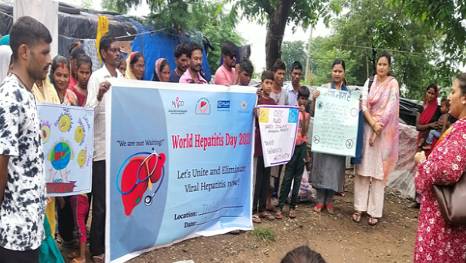
This involves thorough screening, diagnosis, treatment initiation, and follow-up for five major diseases: STIs (Sexually Transmitted Infections), Syphilis, Tuberculosis, HIV, and Viral Hepatitis.
In the OSC component, these services are offered to three specific groups: bridge populations, People Who Inject Drugs (PWID), and transgender individuals. Conversely, the Prison and OCS component primarily focuses on delivering these services to the incarcerated population.
Importantly, these services are provided through collaborations with the Integrated Counselling & Testing Centre (ICTC), Anti-retroviral Therapy (ART) Centre, and other relevant stakeholders.
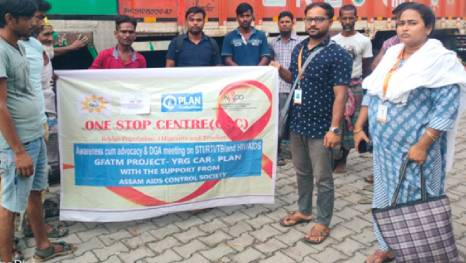
To address the vulnerabilities that may lead to HIV risk behavior, the programme utilises various public benefit schemes and helps individuals access entitlements that promote social inclusion and alleviate economic hardships.
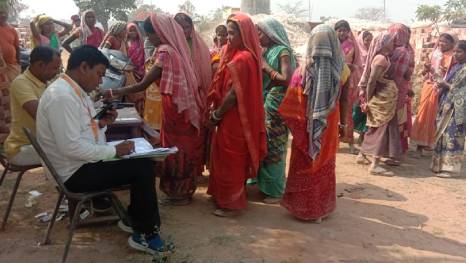
The Prison and OCS component mainly provides 10 essential service components, which include SBCC/ IEC, Prevention of medical transmission, PPTCT, Vaccination & Prevention of Viral Hepatitis, Integrated Testing & Counselling for HIV, Prevention of Sexually Transmitted Diseases, Prevention of Tuberculosis, Opioid Substitution Therapy for Persons Who Inject Drugs, Anti-retroviral Therapy.
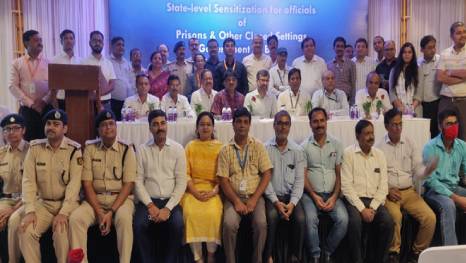
For more information, write to info@yrgcare.org


